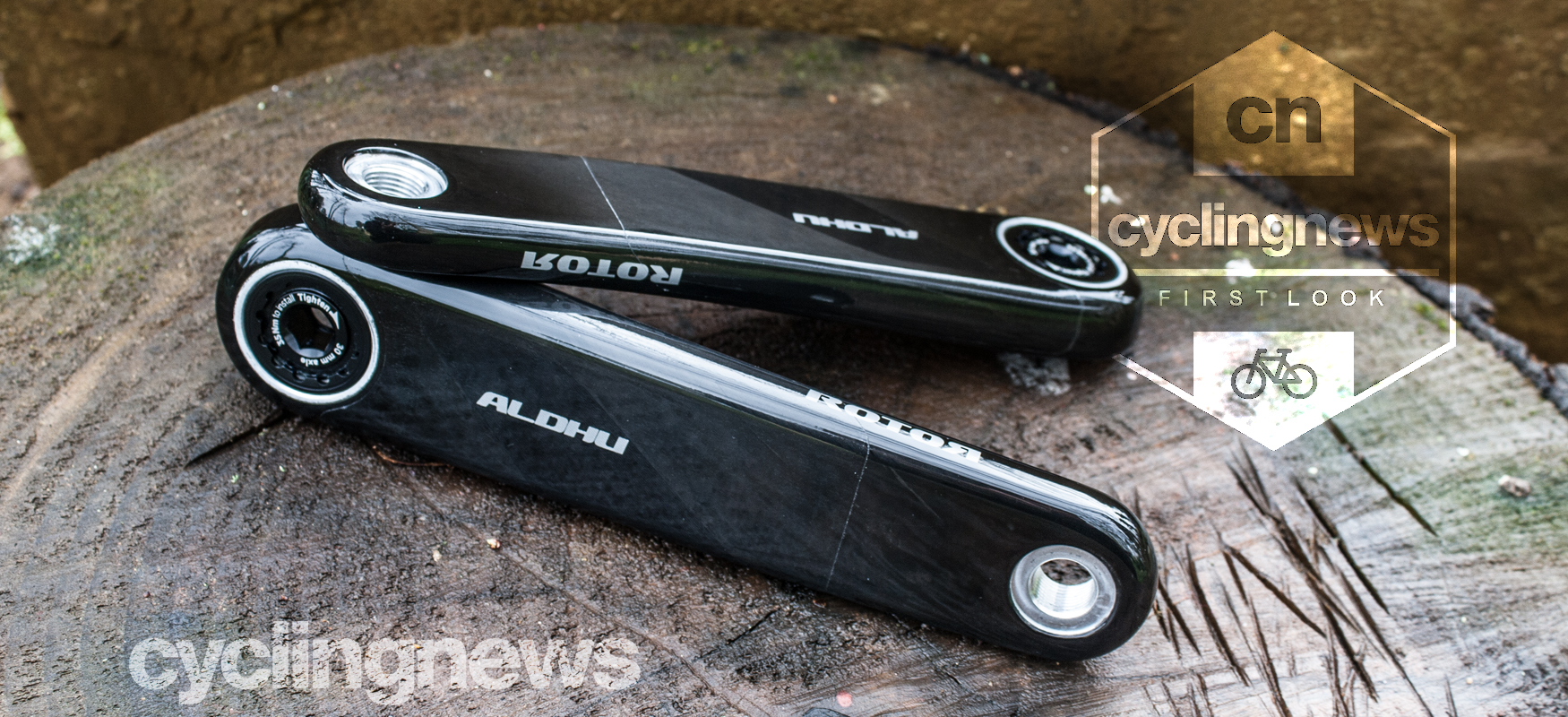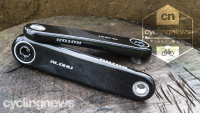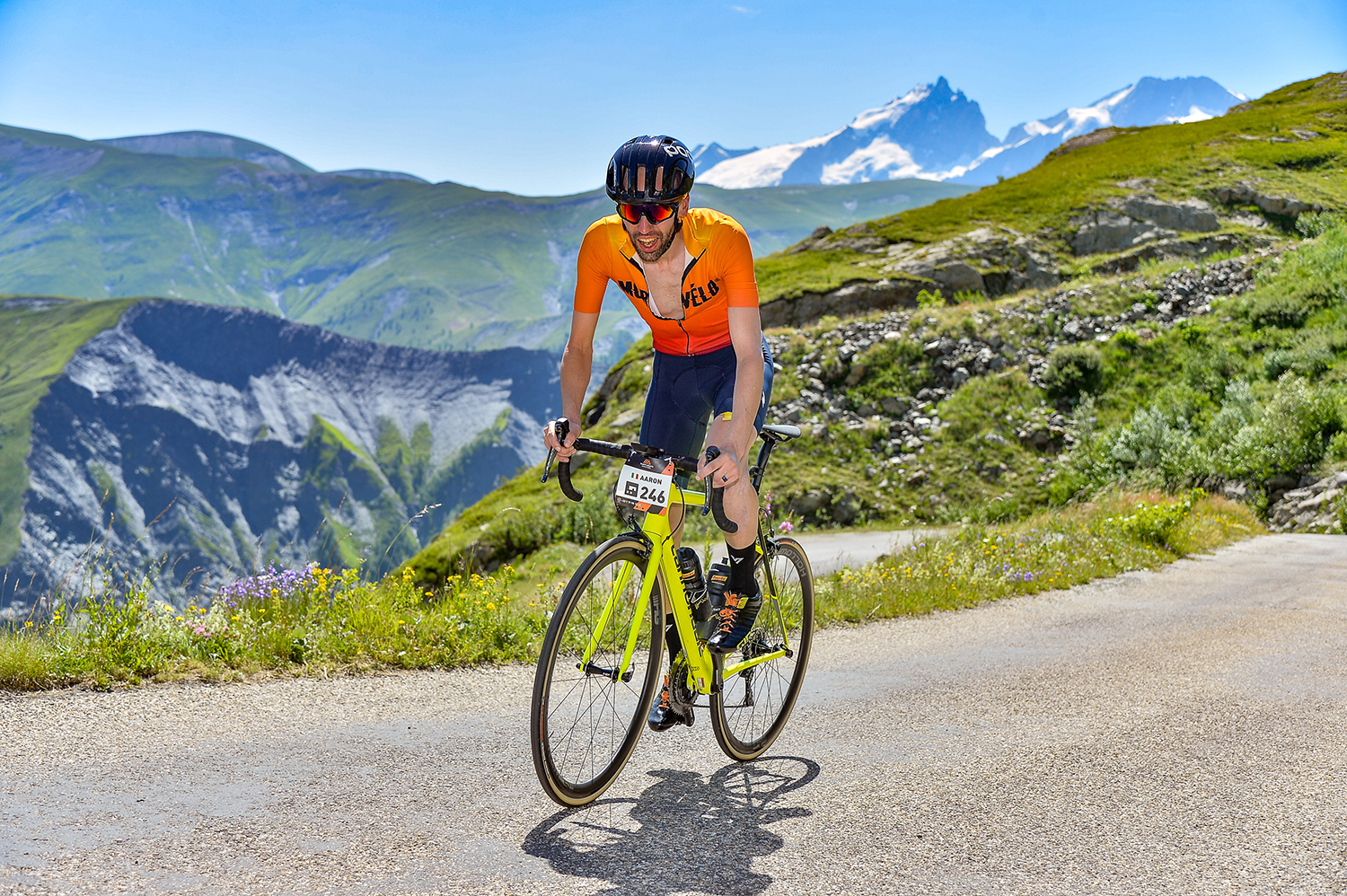Early Verdict
Rotor has upped the ante with the ALDHU Carbon cranks - a lightweight, modular system designed to improve pedalling stiffness and minimise power loss
Pros
- +
Lightweight
- +
Carbon aesthetics
- +
Modular, self-extracting design philosophy
- +
Multiple crank length options (165/170/172.5/175mm)
- +
Easy installation
Cons
- -
Pricey initial outlay but the modular system makes upgrading parts relatively affordable down the line
You can trust Cyclingnews
Rotor's ALDHU abbreviation is a dead giveaway when it comes to understanding where this nameplate sits within the brand's component hierarchy system. ALDHU stands for Alpe d'Huez - the mystical climb in the French Alps where Rotor secured its first Tour de France stage victory under the propulsion of Team CSC-Saxo Bank's Carlos Sastre in 2008 - and adorns Rotor's lightest and most performance-focused products.
Four years in the making, the ALDHU-branded crankarms you see here mark the company's recent investment in carbon composite construction - and have been designed to offer another layer of integration to its crankset systems. This notion of modularity means the carbon crankarms will play nicely with any of Rotor's current drivetrain configurations - mountain bike systems included.
With Rotor's INSpider crankset currently in for testing, the obvious next step involved calling in a pair of ALDHU carbon crankarms to complement the setup and establish whether or not adding them to the arrangement yield any tangible performance gains.
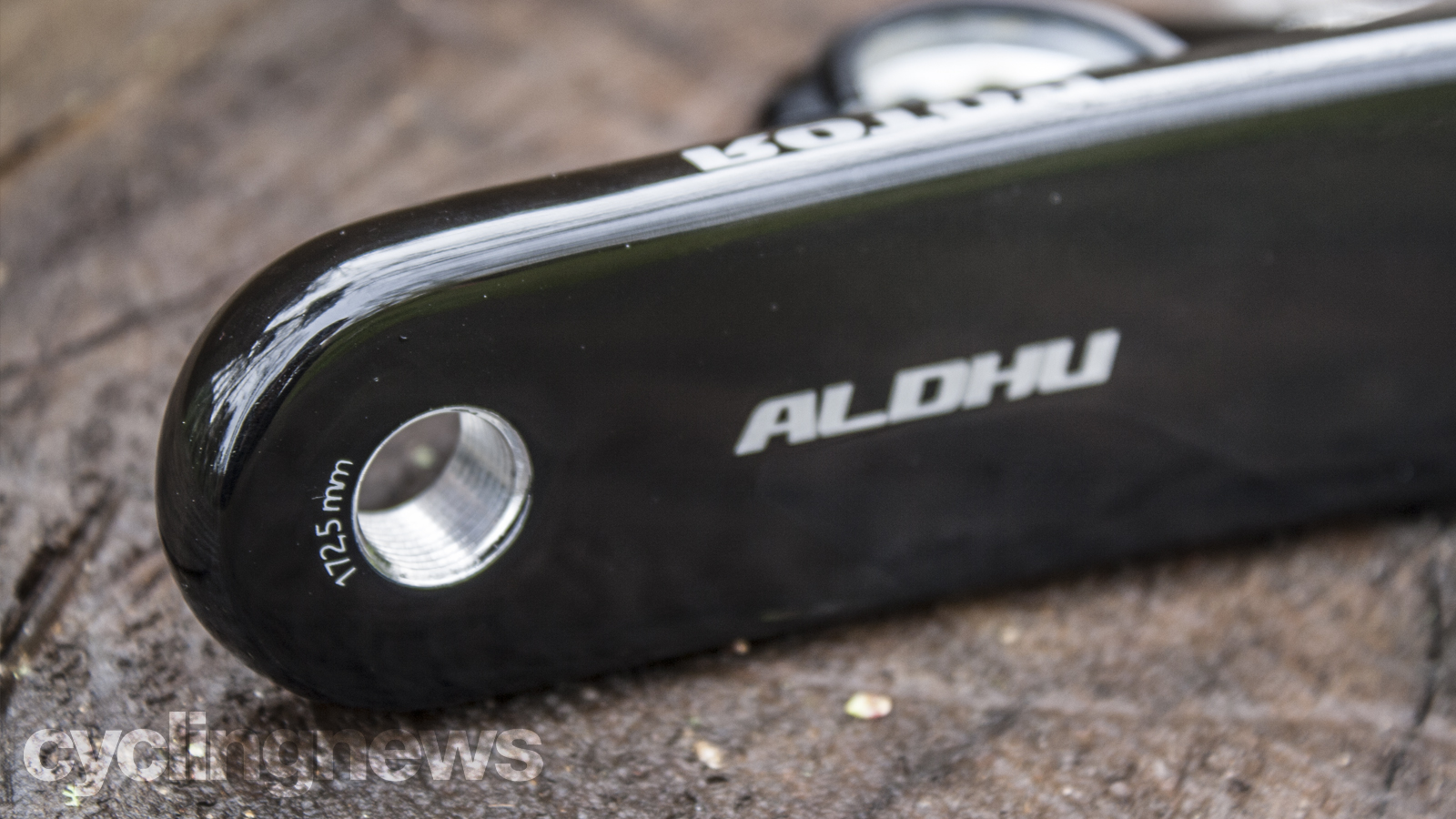
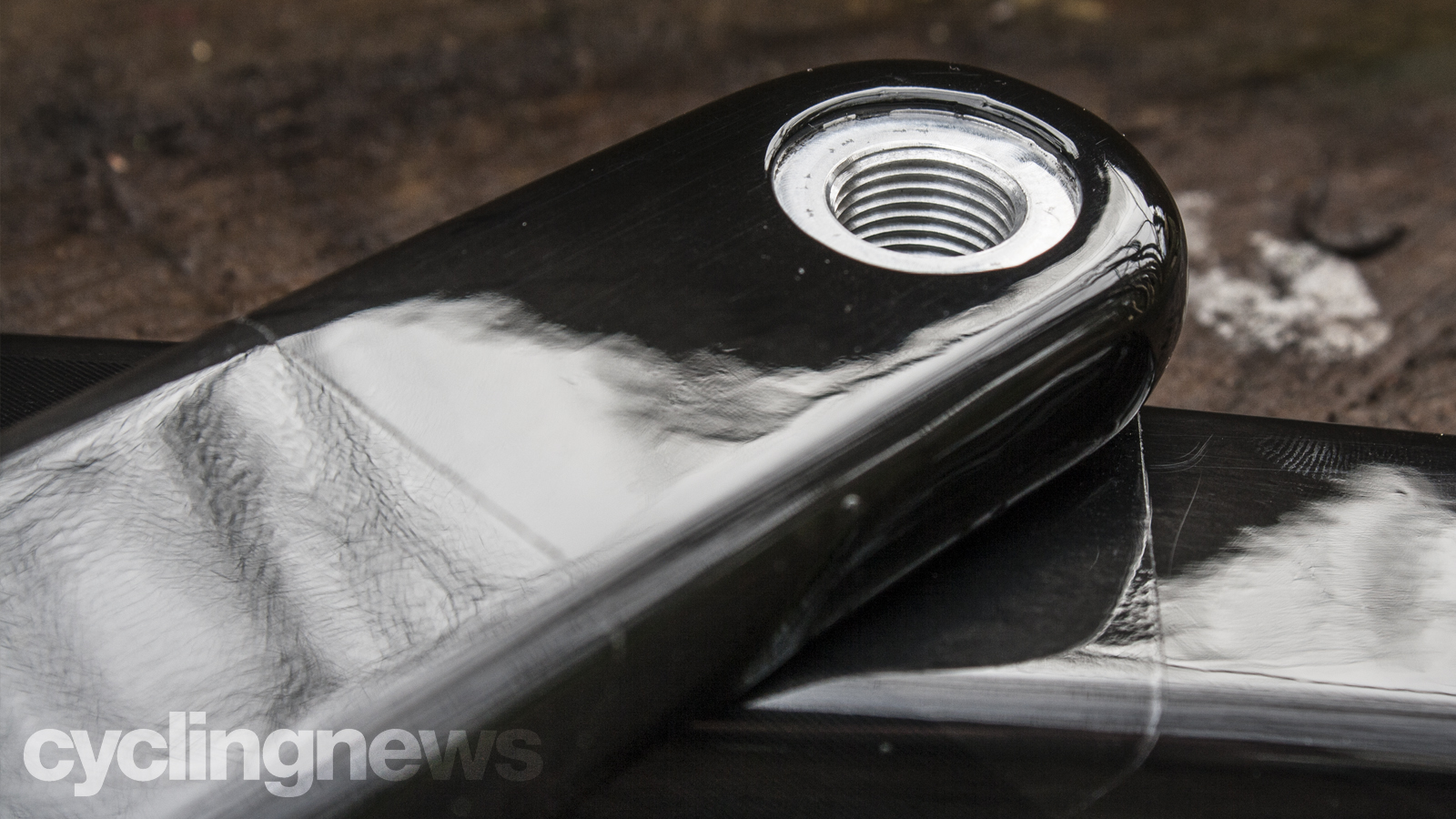
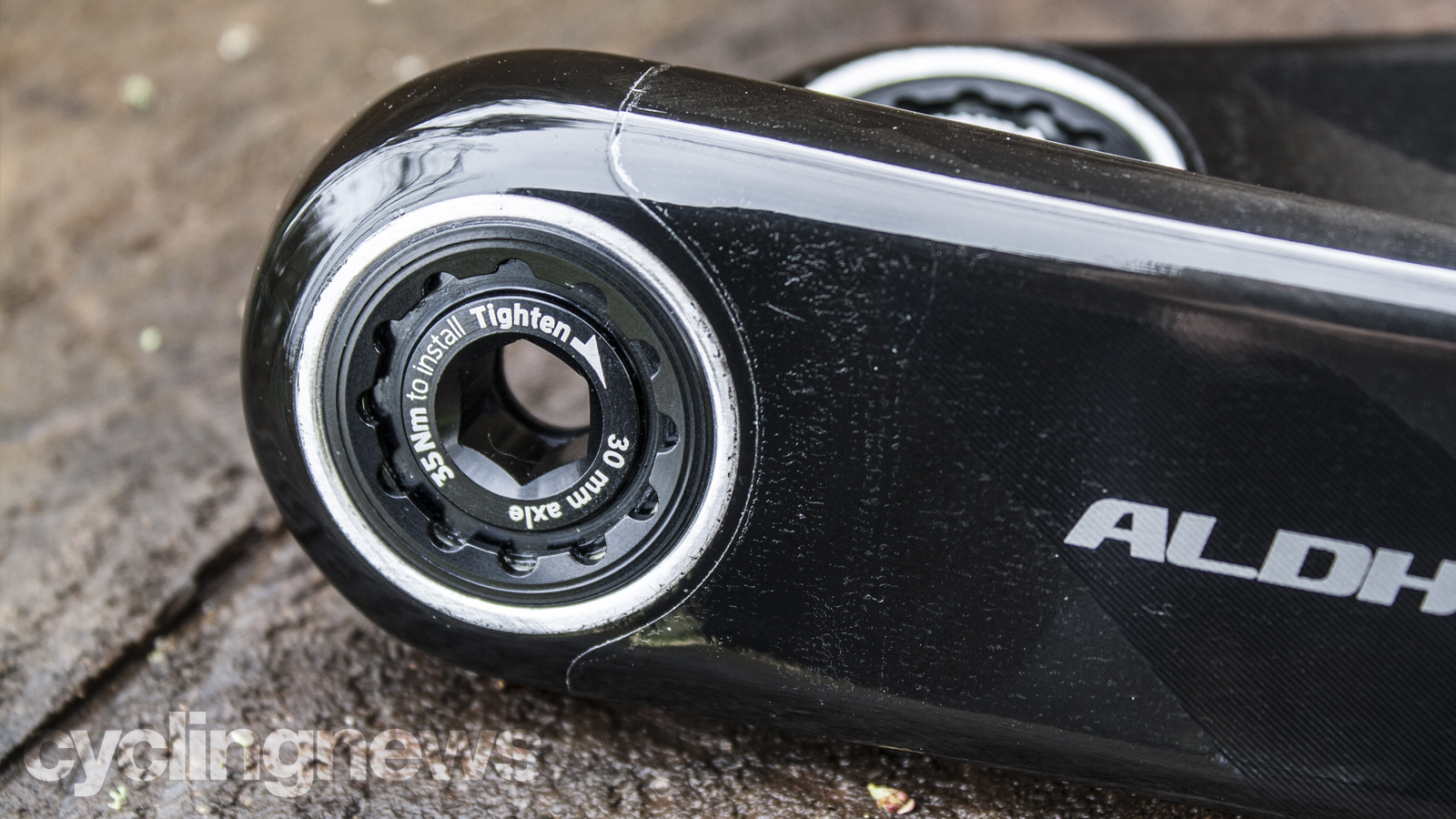
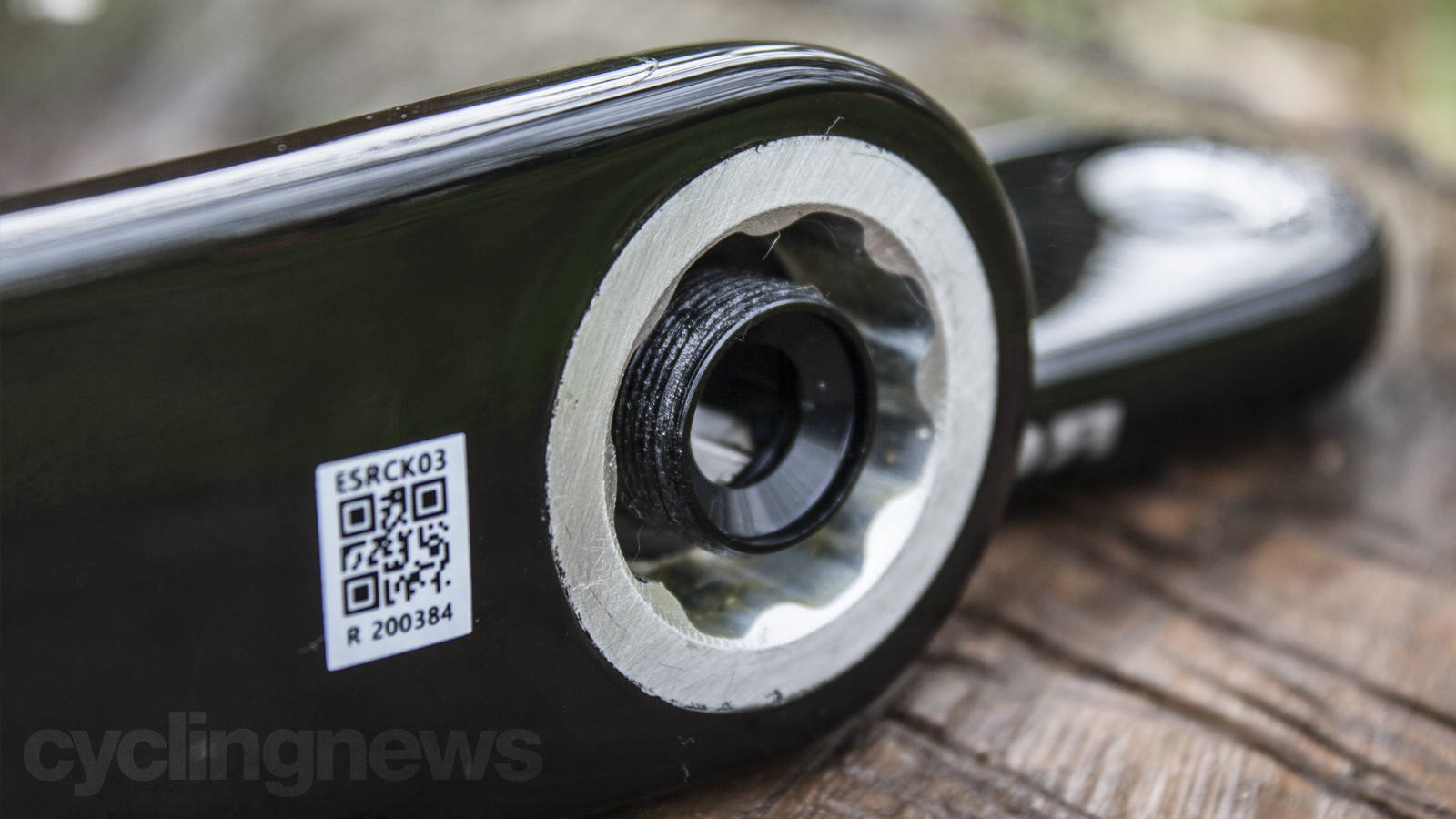
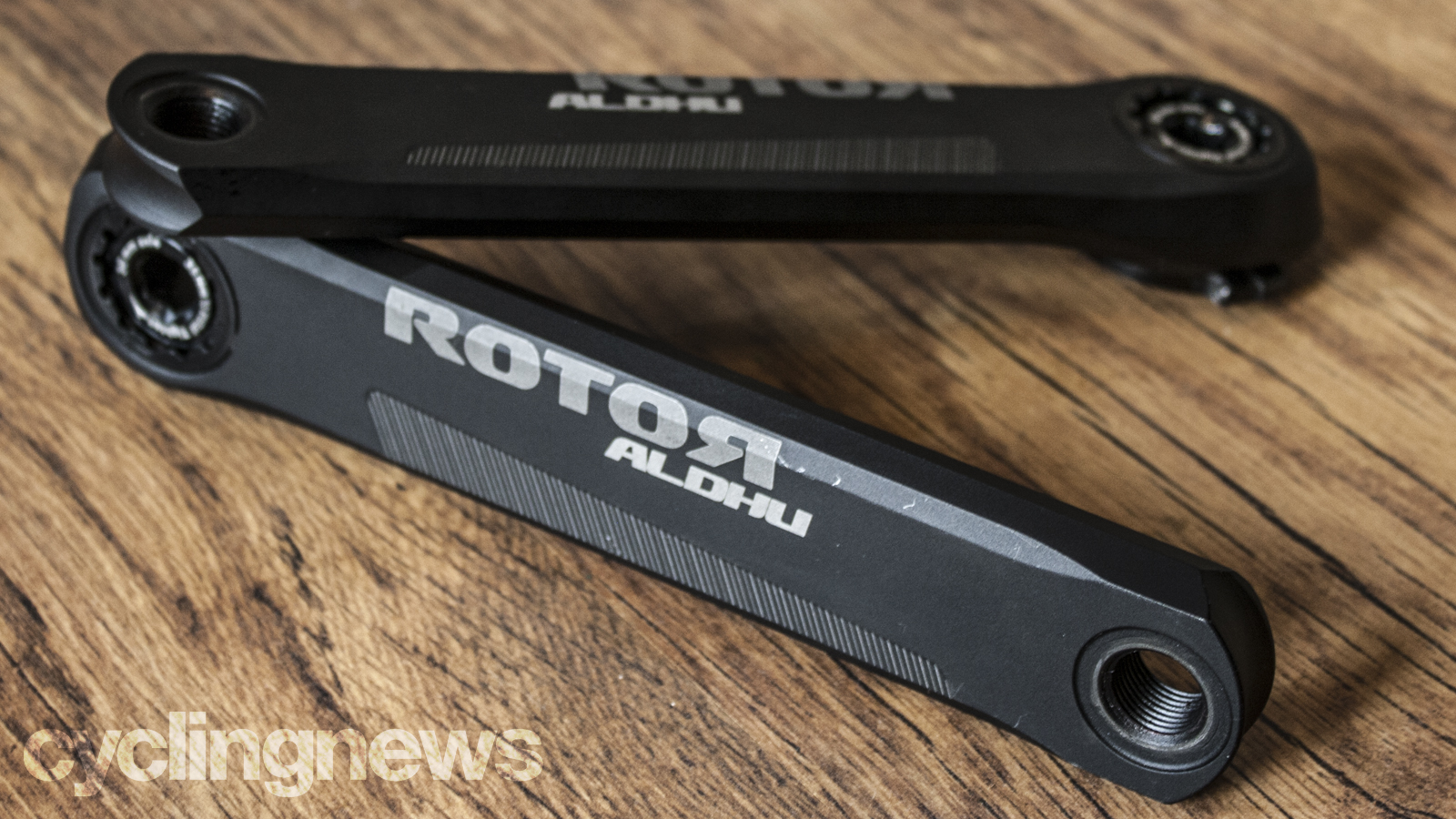
- Road bike groupsets: A complete overview of today's best groupsets, no matter your budget
Design and aesthetics
Visually, Rotor's ALDHU Carbon crankarms are a thing of beauty. Like the alloy version, a series of diagonal lines form a strip that runs across the ALDHU logo on the crankarm but it's more subdued and does well to tastefully contrast the incandescent-like unidirectional high-gloss carbon-fibre finish.
Minimalist in design and execution, the words 'ALDHU' and 'Rotor' are almost stealth-like in their placement and the whole aesthetic follows a very similar design recipe to the MTB-specific Kapic Carbon crankarms. Save for the flared design profile both Carbon crankarms (the ALDHU and Kapic) share the same design DNA as well as employ Rotor's proprietary spline interface and aluminium axle.
The modular nature of Rotor's design philosophy means the Carbon cranks integrate seamlessly with the INspider system and its direct-mount arrangement - all of which makes for a clean and tidy-looking package.
- Object of Desire: The hidden gems on EF's new jersey
- Object of Desire: CeramicSpeed 3D-printed Ti OSPW system
- Object of Desire: SRM X-Power power meter pedals
- Object of Desire: Rapha x Palace POC Ventral Spin helmet
- Object of Desire: Corima 47mm MCC DX tubular wheels
Specifications
The beauty of Rotor's crankset lies in the modular design philosophy. What this means is that everything from the arms and chainrings to the spider and power meter is interchangeable allowing riders to mix and match or swap certain components between bikes. As Cyclingnews is already in the possession of an INspider crankset, Rotor sent us a set of ALDHU Carbon arms to further showcase the modular nature of the setup.
The ALDHU Carbon crankarms weigh just 250g (actual, 120g drive-side/130g non-drive-side) in 172.5mm format, which shaves a significant 100g off the ALDHU 170mm aluminium cranks (170g drive-side/180g non-drive-side) that were originally fitted. The crankarms are said to offer a respective 11% and 36.1% improvement in vertical and horizontal stiffness over the regular alloy version and are available in a spread of four lengths - 165/170/172.5/175mm.
The ALDHU Carbon crank is designed around Rotor's own 30mm axle and features a clever system called Twin Leg Technology, which essentially minimises power loss when pedalling force is applied to the left pedal. While it's difficult to put these claims to test, the entire Rotor INspider crankset system complete with ALDHU Carbon arms has been working flawlessly - no noises or creaking here.
We've used the system in a host of different settings and conditions - rain and sunshine included - as well as a few indoor cycling sessions on the turbo trainer and the results have been consistently good.
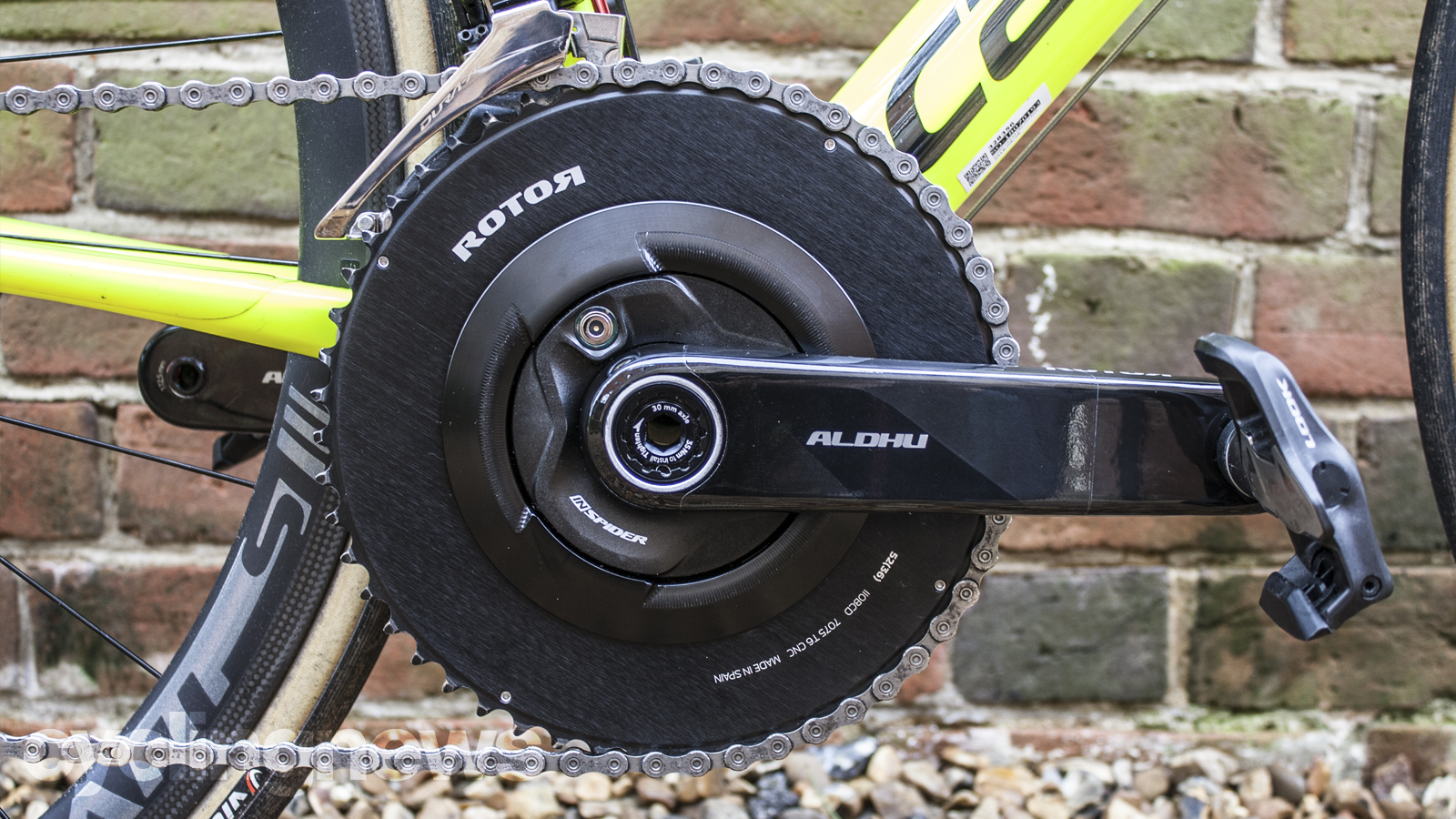
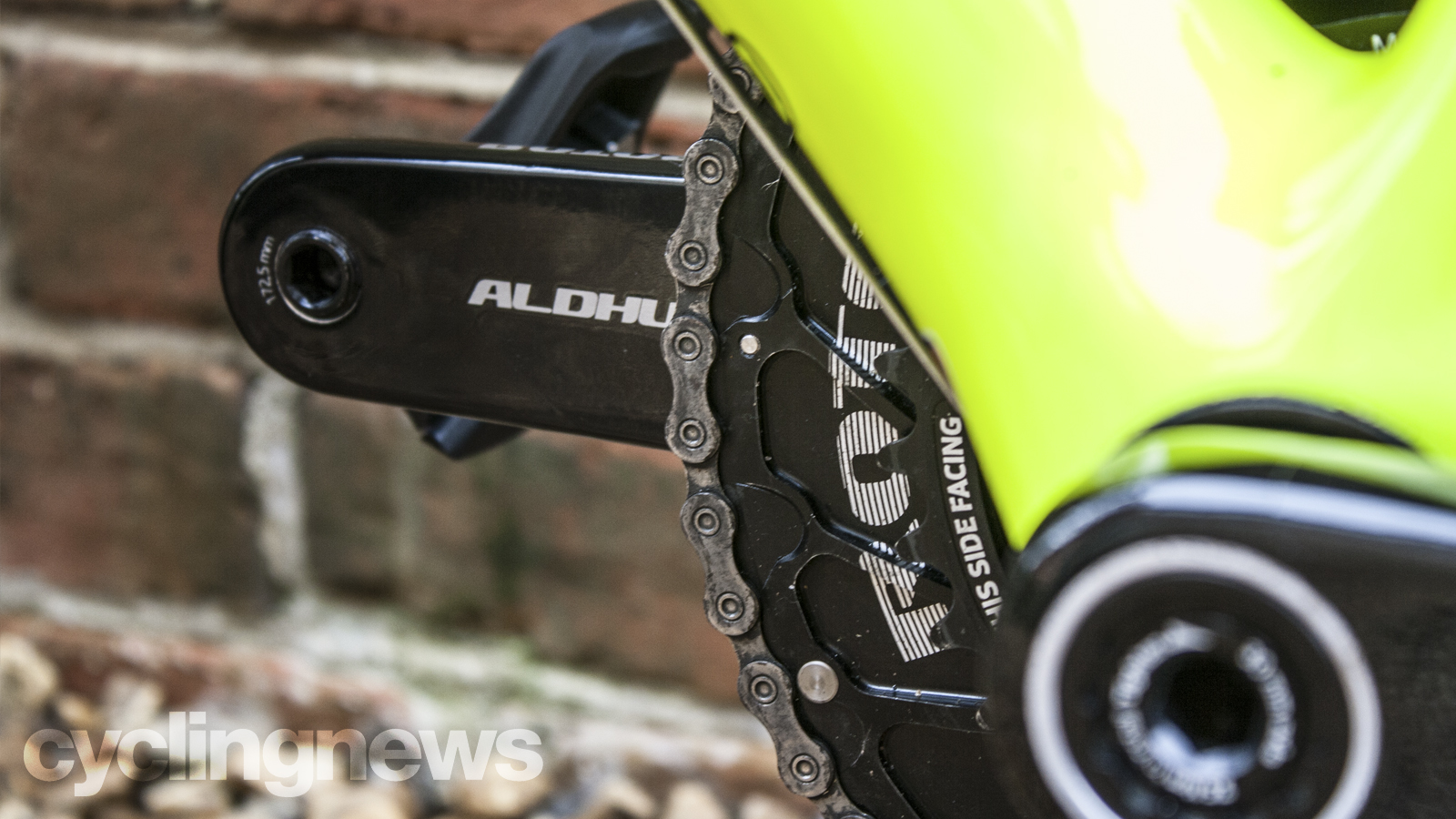
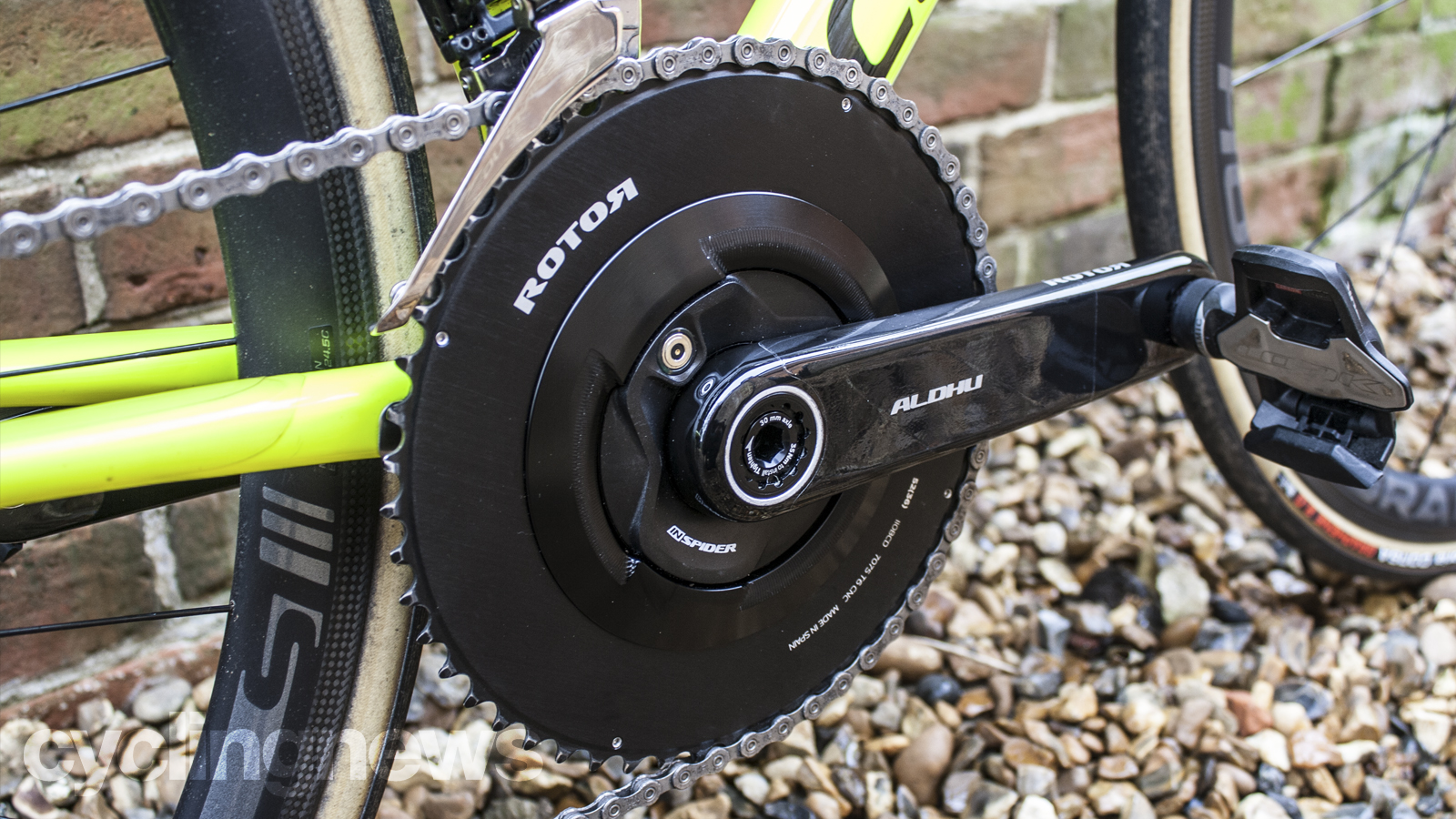
Verdict
At £345.58 / $449 / €389 the Rotor ALDHU Carbon crankarms might appear as a somewhat costly proposition but the modularity of upgrading individual parts makes it a no brainer for those who already possess a Rotor crankset system. It will undoubtedly save you money in the long run, not to mention double up for use across myriad cycling disciplines.
We've been using the crankarms for the past month and have nothing negative to report. As with the original INspider assembly, the installation was straight forward and everything has been running smoothly. We'll continue to test the ALDHU Carbon crankarms together with the INspider power meter crankset while we finalise our verdict and establish where it sits in the segment.
The full review will be published on Cyclingnews soon.
Tech Specs: Rotor ALDHU Carbon cranks
- Price: £345.58 / $449 / €389
- Weight: 250g (actual, 172.5mm)
- Crank length: 165mm, 170mm, 172.5mm, 175mm
- Features: Twin Leg Technology, OCP Mount, INspider power meter compatible
Aaron was the Tech Editor Cyclingnews between July 2019 and June 2022. He was born and raised in South Africa, where he completed his BA honours at the University of Cape Town before embarking on a career in journalism. Throughout this career, Aaron has spent almost two decades writing about bikes, cars, and anything else with wheels. Prior to joining the Cyclingnews team, his experience spanned a stint as Gear & Digital editor of Bicycling magazine, as well as a time at TopCar as Associate Editor.
Now based in the UK's Surrey Hills, Aaron's life revolves around bikes. He's a competitive racer, Stravaholic, and Zwift enthusiast. He’s twice ridden the Cape Epic, completed the Haute Route Alps, and represented South Africa in the 2022 Zwift eSports World Championships.
Height: 175cm
Weight: 61.5kg
Rides: Cannondale SuperSlice Disc Di2 TT, Cannondale Supersix Evo Dura-Ace Rim, Cannondale Supersix Evo Ultegra Di2 Disc, Trek Procaliber 9.9 MTB
What is a hands on review?
'Hands on reviews' are a journalist's first impressions of a piece of kit based on spending some time with it. It may be just a few moments, or a few hours. The important thing is we have been able to play with it ourselves and can give you some sense of what it's like to use, even if it's only an embryonic view.
